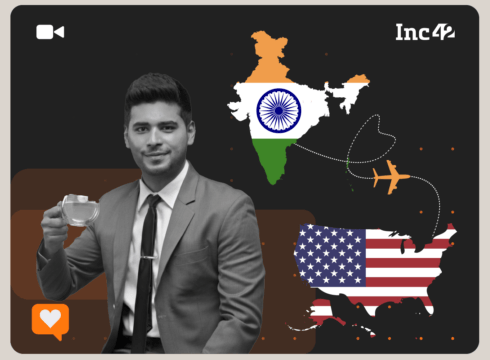There is not much difference in global inventory management compared to what’s done in India except that the lead times are higher, Sarda said at Inc42’s ‘The D2C Summit 3.0’
Sarda said it is important for founders to understand regulations in various global markets and do basic homework about it before going global
On the Day 1 of Inc42’s The D2C Summit 3.0, several founders of prominent D2C brands will be joining to discuss building, operating, and scaling profitable ecommerce businesses in India
Inc42 Daily Brief
Stay Ahead With Daily News & Analysis on India’s Tech & Startup Economy
D2C brands aspiring to go global need to put 5X more efforts in planning their inventory for the global markets as not doing so immediately can lead to a 5X rise in costs, Vahdam India founder and CEO Bala Sarda said at Inc42’s ‘The D2C Summit 3.0’.
As per Sarda, there is not much difference in global inventory management compared to what’s done in India except that the lead times are higher. Besides, the way a business designs its supply chain and manages working capital also makes a difference in global inventory management.
Citing an example, he said that if freshness is crucial to a product, then the D2C brand trying to sell such a product needs to ensure that raw material buying is extremely efficient, as it cannot change the transit time in case of sea shipment.
“So, identify the fixed parts of your supply chain, the variable parts, and try to obviously minimise the number of days it takes in each of them and approach your global inventory piece,” Sarda said.
In the session, ‘D2C Brands’ Global Expansion Playbook’, Sarda, who has taken his Indian D2C tea brand Vahdam India to global markets such as the US, Canada, the UK and Germany, also spoke on various other aspects about expanding a brand’s global footprint.
Talking about the importance of understanding regulations in various global markets, Sarda said that founders need to do basic homework around it.
He said that a D2C brand will have to deal with a lot of regulations and authorities in trying to take the brand global, especially in a category like food and beverages. “So, I think (it’s) critical to solve that because you don’t want to be in a situation three years later, where you are stuck in a lot of these regulatory loopholes,” he said.
With companies like Amazon and Shopify coming in, and improvements in the overall logistics, payment and banking infrastructure, things have become a little easier compared to a few years ago, he said, adding that entrepreneurs can aspire to go global now as several barriers have been removed.
While Sarda believes that it is indeed an “incredible time” for Indian startups to go global, he said that the brands need to have a “strong ticket” to expand their global footprint and win.
Sarda founded the vertically-integrated, online-first tea brand Vahdam India in 2015. All Vahdam teas are procured directly from hundreds of plantations and tea growers in India and Nepal, and shipped to global markets after processing and packaging.
India’s D2C segment is witnessing a massive boom in the overall ecommerce segment. As per an Inc42 report, the D2C brands in the country raised $1.3 Bn in the first six months of 2022, the highest among all ecommerce sub-sectors.
On Day 1 of Inc42’s The D2C Summit 3.0, several founders of prominent D2C brands will be joining to discuss building, operating, and scaling profitable ecommerce businesses in India and addressing logistics, brand building, marketing, and several such challenges.
{{#name}}{{name}}{{/name}}{{^name}}-{{/name}}
{{#description}}{{description}}...{{/description}}{{^description}}-{{/description}}
Note: We at Inc42 take our ethics very seriously. More information about it can be found here.


